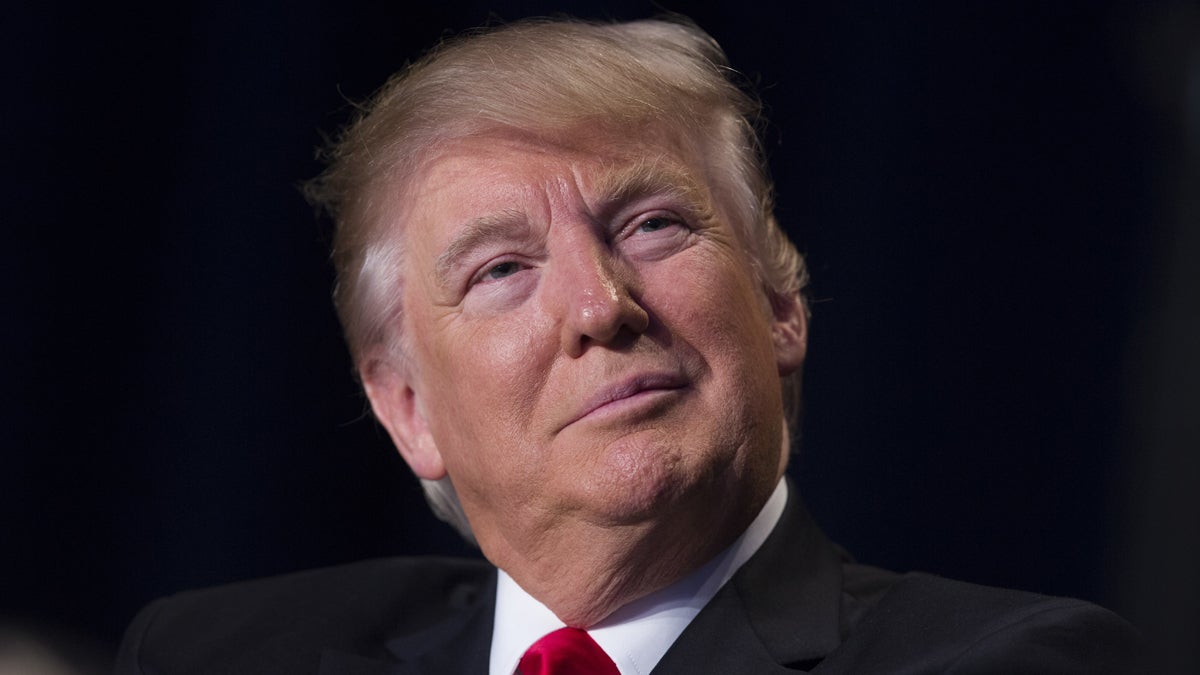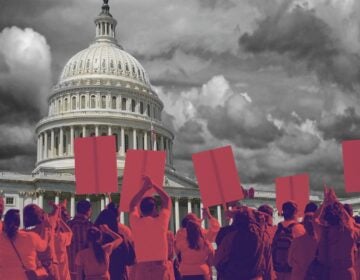Is America becoming a mafia state?

In this Feb. 2, 2017, photo, President Donald Trump listens as he is introduced during the National Prayer Breakfast in Washington. (AP Photo/Evan Vucci, file)
Increasingly the United States runs the risk of looking and behaving like a mafia state. This is a sign of the times under the presidency of Donald Trump. However, the problem does not end with Trump, but rather only begins with him.
At the Brussels Economic Forum on June 1, George Soros characterized today’s iteration of the totalitarian regime as a mafia state, “one which maintains a façade of democracy but the rulers use their control of the media, the judiciary, and the other levers of influence, to enrich and maintain themselves in power.”
While such a definition may apply to Russia, Turkey, Hungary, the Philippines and other nations in which strongmen rule and there is no pretense of democratic governance (think of stereotyped banana republics and repressive regimes with authoritarian strongmen running government like a family business), increasingly the United States runs the risk of looking and behaving like a mafia state. This is a sign of the times under the most unconventional, self-serving, and destructive presidency of Donald Trump. However, the problem does not end with Trump, but rather only begins with him.
A federal lawsuit filed by the attorneys general of Maryland and the District of Columbia against Trump goes to the heart of what separates an open society from a totalitarian or mafia state. Filed in the district of Maryland, the lawsuit claims Trump is profiting from both domestic and foreign government actors, a violation of the Domestic Emoluments Clause and the Foreign Emoluments Clause of the U.S. Constitution — two anti-corruption measures designed to free the president from compromising entanglements so that he or she may serve the people.
The complaint further alleges that his ongoing ownership of a global real estate empire, and receipt of millions of dollars in payments and other benefits “renders him deeply enmeshed with a legion of foreign and domestic government actors” and “calls into question the rule of law and the integrity of the country’s political system.” The District of Columbia and Maryland claim they suffer financial harm from Trump’s companies, which divert customers from businesses they own, license, or tax.
Meanwhile, 196 Democratic lawmakers — 30 in the Senate and 166 in the House of Representatives — filed a federal lawsuit alleging that Trump is violating the Constitution by doing business with and receiving payments from foreign governments. The plaintiffs allege the president has decided to accept foreign payments without approval from Congress, and note that the Foreign Emoluments Clause “was designed to ensure that our nation’s leaders would not be corrupted by foreign influence or put their own financial interests over the national interest.”
The members of Congress indicated that corruption was on the minds of the nation’s founders, who viewed it as one of the most serious threats to the new nation, with anti-corruption measures essential to maintaining a republican form of government. Those founders also focused on the potential for foreign powers to interfere with the internal affairs of the U.S.
“Alexander Hamilton wrote that one of the vulnerabilities of republics ‘is that they afford too easy an inlet to foreign corruption,’” the complaint reads. “Of particular concern to the Founders was the risk that foreign states would give benefits and rewards to the nation’s chief executive to subvert his loyalty …. As a temporary officeholder, the President ‘might receive a bribe which would enable him to live in greater splendor in another country than his own; and when out of office, he was no more interested in the prosperity of his country than any other patriotic citizen.’”
Regardless of the outcome of these legal actions, the steps taken by these senators, representatives, and attorneys general — and New York attorney general Eric Schneiderman‘s reported investigations into the financial dealings of Trump and those close to him — provide a valuable public service. If the allegations are true that Trump and his minions colluded with Russian officials to interfere with the 2016 election, the president is a traitor. If it is found that he obstructed justice, then Trump is a crook. But a president who merges his private business interests with that of the state, and uses his office for financial enrichment is a crime boss as well. As Trump engages in this unprecedented level of corruption and flaunts it openly — from his Trump International Hotel hosting foreign embassy events and the $200,000 annual fee at his private Mar-a-Lago club in Palm Beach, to the granting of his Chinese trademarks and Jared Kushner’s sister selling U.S. visas in China — society risks normalizing his behavior.
The notion of organized crime running America — of a small cabal of oligarchs rigging the political, economic, and social systems for their own enrichment — has the potential to overtake America. The U.S. Supreme Court decision in Citizens United has allowed for the entrenchment of corporate influence in American politics and our elections, a phenomenon that consumes both Democrats and Republicans. A corporate coup is taking place in our government; with a mafia economic system comes a mafia politics. Goldman Sachs, hedge fund managers, and corporate titans engage in predatory lending, economic exploitation, and neoliberal policies of deregulation, placing wealth in the pockets of the few driving unprecedented inequality.
Big money wants to shred the Constitution, with the Koch Brothers and the American Legislative Exchange Council funding efforts to convene a constitutional convention as a means to limit federal power and spending and introduce austerity measures. A balanced budget amendment imposing fiscal restraints on the federal government is a favorite of supporters of the convention effort, which could spiral out of control and lead to a runaway convention in which anything goes. Other proposals include term limits, abolishing the federal income tax, severely curtailing the power of the executive and legislative branches, and allowing congressional override of regulations. If delegates are able to rewrite the Constitution in wholesale fashion, what prevents them from shredding the Bill of Rights, reinstituting slavery, denying women the right to vote, or establishing Christianity as the official religion?
The entrenchment of economic and political power in the hands of the few — who manipulate government to work for their personal benefit — is a matter that should concern us all.
WHYY is your source for fact-based, in-depth journalism and information. As a nonprofit organization, we rely on financial support from readers like you. Please give today.




